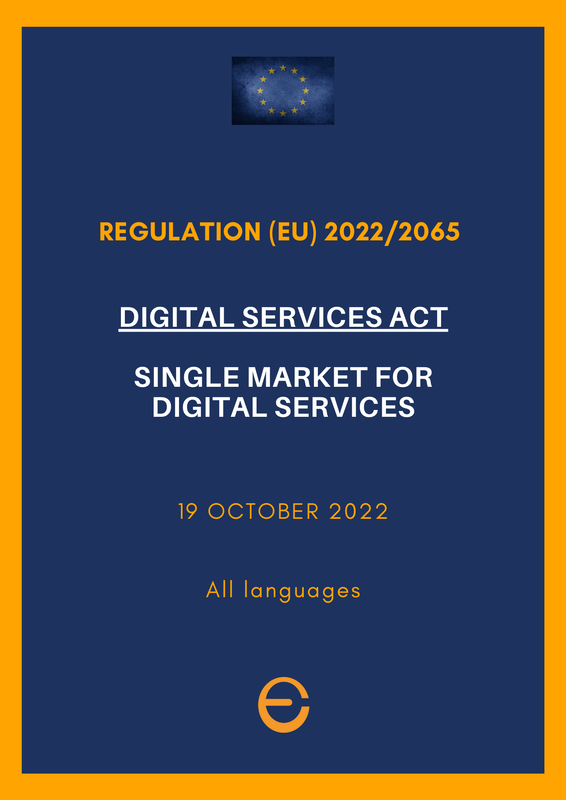|
Brussels, |
|
DIGITAL EUROPE
DSA - Digital Services Act
This Regulation is in force as of 17 February 2024.
|
The Digital Services Act (DSA) is a EU Regulation aiming at updating the rules governing online platforms and services in Europe. There are new obligations for online platforms to tackle illegal content, increase transparency around content moderation, and provide redress mechanisms for users.
The act also introduces a new regulatory framework for online advertising. The DSA seeks to promote a safer and more transparent online environment while balancing the interests of platform providers, users, and society at large. Under the DSA, large online platforms have to follow a set of strict rules, including taking steps to prevent the spread of illegal content, removing harmful content promptly, providing greater transparency around content moderation decisions, and implementing effective complaint mechanisms. The act asks for measures to increase the accountability of online platforms and ensure a level playing field for businesses in the digital economy. DSA includes due-diligence obligations for certain intermediary services, notice-and-action procedures for illegal content, and the ability to challenge content moderation decisions. It seeks to improve users' safety online across the Union and protect their fundamental rights. |
DSA also sets a higher standard of transparency and accountability for very large online platforms, with obligations to assess the risks their systems pose and develop appropriate risk management tools. The operational threshold for service providers in scope of these obligations is those with a significant reach in the Union, currently estimated to be over 45 million recipients of the service. The Digital Services Act also includes a co-regulatory backstop, building on existing voluntary initiatives.
The proposal maintains the liability rules for providers of intermediary services set out in the e-Commerce Directive but clarifies certain aspects to eliminate existing disincentives and provide greater legal certainty. It also aims to enhance cooperation among Member States to ensure effective oversight and enforcement of the new rules.
The proposal maintains the liability rules for providers of intermediary services set out in the e-Commerce Directive but clarifies certain aspects to eliminate existing disincentives and provide greater legal certainty. It also aims to enhance cooperation among Member States to ensure effective oversight and enforcement of the new rules.


